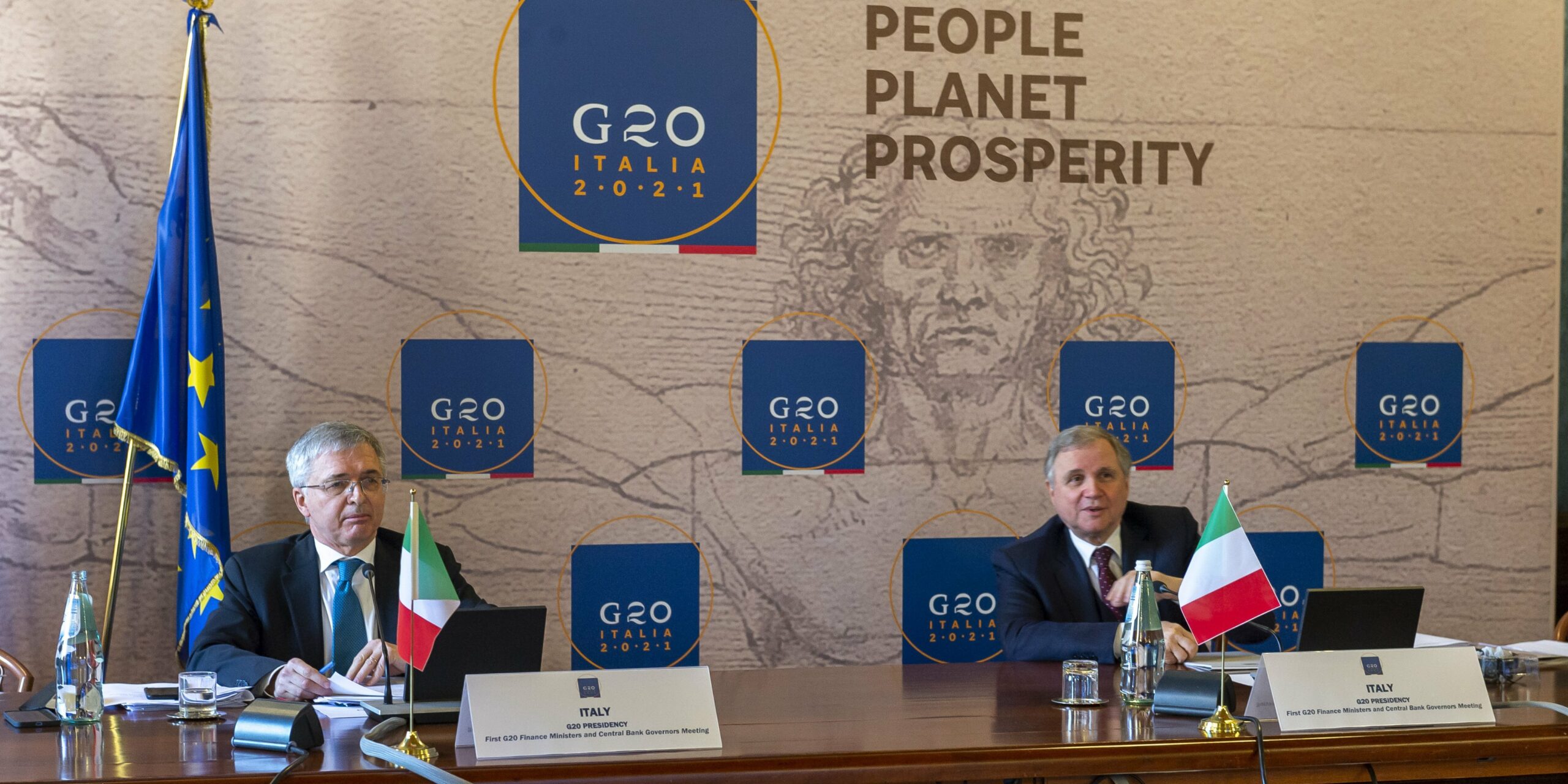How did the first meeting of the G20 with the new Minister of Economy go

The new Economy Minister, Daniele Franco, led the first meeting of the Italian Presidency of the G20. The article by the economist Chiara Oldani
Finance ministers and central bank governors from the G20 met online on Friday 26 February.
The new minister Daniele Franco led the first meeting of the Italian Presidency of the G20.
The technical meeting was essential to lay the foundations for an intense year of work, which will have to create the conditions for a strong, sustainable and healthy recovery.
Contrary to the 2020 Saudi Presidency, ministers and governors have expressly pledged to enhance international coordination to address current global challenges, adopting a stronger multilateral approach and focusing on certain priorities.
Global economic policy is at work, after a few years of useless populism, trade wars and sterile autarchy.
Key topics of the meeting were health as well as economic conditions, access to vaccines for poor countries, currently excluded from the large-scale immunization process and the need to define the taxation scheme for digital activities .
Ministers and governors acknowledged that health and economic conditions remain difficult, despite the launch of extensive vaccination campaigns and signs of strengthening economic activity.
Ensuring equal access to vaccines, safe diagnostic and therapeutic tools for all countries are top priorities for the G20. Equally important are the efforts to promote preparedness against future pandemics: an independent high-level group has been set up for this purpose.
The meeting discussed the benefits of joint action and strong political cooperation and agreed that too premature easing of support measures should be avoided.
In April 2021, the update of the G20 action plan will offer the opportunity to address new and pre-existing challenges, such as low productivity growth, rising inequality, climate and environmental risks and the deficit infrastructure financing.
Ministers and governors reiterated their support for the most vulnerable countries, especially those facing an unsustainable debt burden.
Milestones in the near future include the effective implementation of the G20 Common Framework on Debt Treatment and the Debt Service Suspension Initiative.
They also called on international financial institutions to explore additional tools to meet long-term global funding and reserve needs; the IMF should make a proposal for a general allocation of Special Drawing Rights .
Another point discussed by ministers and governors was their recovery strategies as a unique opportunity to support the transition to more sustainable, inclusive and equitable societies.
The milestones will be considered in greater depth in future meetings and, in particular, during two events: a high-level tax symposium and a climate conference, both to be held in Venice in July 2021. These events will bring together policy makers, international financial institutions and eminent representatives of the private financial sector.
On the topic of international taxation, the meeting focused on the pressing need to reform the current system to better respond to the new challenges posed by globalization and above all by the digitalization of the economy. In this regard, the G20 will work towards a comprehensive and consensus-based solution by mid-2021.
Ministers and governors also discussed the challenges the Covid-19 crisis poses to financial stability and inclusion. They agreed that preserving financial stability and the financial sector's ability to support recovery is a key priority and maintaining close cooperation is essential for these goals.
Although the emergency is not yet behind us, ministers and governors are evaluating the lessons already learned from the perspective of financial stability. Work in progress is focusing on strengthening the resilience of the non-bank financial intermediation sector, which contributed to the amplification of the market turmoil of March 2020.
Ministers and governors have expressed broad support for the initiatives of the Italian Presidency of the G20 to ensure growth and financial stability beyond the Covid-19 pandemic.
The swift implementation of the G20 roadmap for strengthening cross-border payments will improve the framework underpinning such transactions, including remittances. Initiatives were also approved to fill gaps in data for assessing climate-related financial risks and to promote more consistent climate reporting.
Recognizing the need to address the impact of climate change on the financial system and ensure its ability to support the transition to more sustainable economies, ministers and governors agreed to re-establish the Sustainable Finance Study Group.
Finally, a dedicated debate took place on the role that the accelerating pace of digitization in payments and other financial services is playing in enhancing or endangering the financial inclusion of the most vulnerable and least served groups.
There was broad consensus on the need to identify correlated gaps that may have emerged following the Covid-19 crisis and to share country-specific experiences and policy responses, including in the field of digital financial awareness.
This is a machine translation from Italian language of a post published on Start Magazine at the URL https://www.startmag.it/mondo/come-andata-la-prima-riunione-del-g20-con-il-neo-ministro-delleconomia/ on Mon, 01 Mar 2021 10:18:09 +0000.
